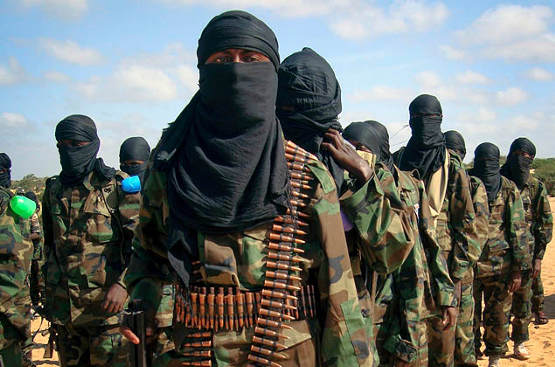What are the benefits of using nuclear energy? First of all, it's much cleaner than coal. It's CO2 emission is relatively low. Unlike coal, where huge amounts of CO2 is released into the air when energy is produce, energy production in nuclear power plants release zero CO2 gases, as well as other greenhouse gases such as SO2 and NO. The process of recovering uranium from the Earth's crust, transportation of uranium and wastes, construction of power plants, etc. do release a certain amount of greenhouse gases into the air. This amount of gases, however, is insignificant when compare to the 1,562 million metric tons of CO2 released by coal power plants in the U.S last year. Because of this, nuclear energy has been proposed as "the" method to mitigate the effects of climate change.
| No more |
But no type of energy is perfect. Even though the whole "unlimited energy" sounds awesome, nuclear energy does possess threats that makes countries and investors hesitate to use it (everything has a catch, I guess).
The first con of nuclear energy is radiation. Radioactive waste is a product of nuclear fission. These waste can't be get rid of and instead being stored in storage ponds under tight security so it won't leak out to the environment. After a certain time, the radiation level of the waste will drop below the harmful level. However, that will take hundreds of years for radioactive waste to completely decay into harmless material. And with nuclear power plants producing more and more waste everyday, we're running out of place to safely store them.
Accident is another problem that many people fear. Example of famous nuclear power plant accidents including the Three Mile Island accident, the Chernobyl disaster, and the Fukushima Daiichi nuclear disaster. In reality, these kind of accidents rarely happen. But when they do, they devastated the entire area, making it inhabitable. The Fukishima accident, for example, create a 30-km evacuation zone where no one is allowed to come in unless under government supervision. The Chernobyl disaster killed 31 workers when it happened, and need a total cost of 18 billion rubles (350 million dollars) to contain the contamination. When such an event happened, it not only devastated the economy of a country, but also intoxicated the surrounding environment and harm people. If you want to know more about how radiation affect a person and what are its effect to human health, click here.
Another con of nuclear energy is the amount of money needed to built a nuclear power plant. Even though when compare to coal power plant, nuclear power plant doesn't cost as much to operate, the cost to build one is just too high for some investors. This is because nuclear power plant have to follow a lot of regulations to make sure that accidents don't happen or radioactive material don't escape to the outside world. Not only that, the cost to store radioactive waste are also high, too. With so much rules and regulations to follow, many investors decide to stick with coal instead. But hey, rules are rules. /nobigdeal
The last con of nuclear energy is that they are hot target for terrorist. Imagine a group of terrorists have control of a ship transferring radioactive waste container to another country for storage. All that radioactive material is now in the hand of people who are willing to release them into the world for their own purposes. How danger does that sound? Nuclear power plant can also be used by countries to make nuclear weapons. Imagine something like the Hiroshima and Nagasaki bombings happen again right now. The effects would be catastrophic.
So, the question still remains: "Should we use nuclear energy or not?" In my opinion, we should use nuclear energy because it can produce a huge amount of energy with low effects on the environment. But if we are going to use nuclear energy more frequently, there need to be better technologies to help increase the safety of power plants, storage of radioactive waste, and recycle radioactive waste. Development in the field of nuclear energy has been stagnant since the 1970s. A lot of nuclear power plant in the world are still using old technologies, which increase the risk of another disaster to happen. So, in order for nuclear energy to replace fossil fuel in the future, improvement in technology is a must.
Too lazy to read? Watch this video instead!
Sources:
Nuclear energy's pros and cons:http://www.conserve-energy-future.com/pros-and-cons-of-nuclear-energy.php
http://energyinformative.org/nuclear-energy-pros-and-cons/
https://www.youtube.com/watch?v=HEYbgyL5n1g
https://www.youtube.com/watch?v=pVbLlnmxIbY
Nuclear power plant CO2 emission:
http://timeforchange.org/co2-emission-nuclear-power-stations-electricity
http://www.epa.gov/cleanenergy/energy-and-you/affect/air-emissions.html
Coal power plant CO2 emission:
http://www.eia.gov/tools/faqs/faq.cfm?id=77&t=11
Science of nuclear power:
http://nuclearinfo.net/Nuclearpower/TheScienceOfNuclearPower
Nuclear power explained:
https://www.youtube.com/watch?v=d7LO8lL4Ai4
https://www.youtube.com/watch?v=rcOFV4y5z8c
Health effects of radiation:
http://www.epa.gov/radiation/understand/health_effects.html
Chernobyl disaster:
http://en.wikipedia.org/wiki/Chernobyl_disaster
Fukishima Daiichi nuclear disaster:
http://en.wikipedia.org/wiki/Fukushima_Daiichi_Nuclear_Power_Plant

Không có nhận xét nào:
Đăng nhận xét